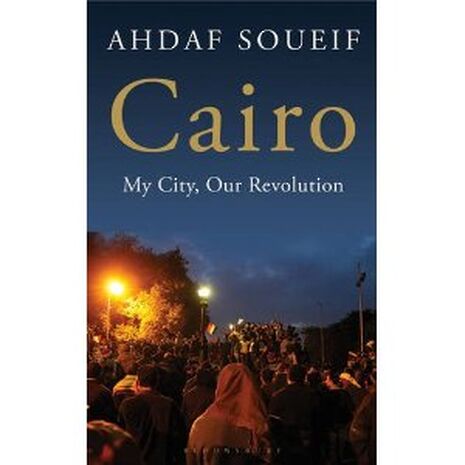Books: Cairo: My City, Our Revolution – Adhaf Soueif
Ed Winfield is struck by the immediacy of this personal account of the Egyptian Revolution

You may have gathered that this Wednesday was the anniversary of the protests which led to the downfall of President Mubarak, and that the Egyptian parliament opened on Monday after an election that a British broadsheet called “the freest in Egypt’s modern history”. So far so good, then.
Yet the most striking element of Ahdaf Soueif’s Cairo is not those eighteen heady days in Tahrir Square last Spring, but the “interruption” that skips on to the Summer and Autumn. The events of Tahrir are recent in the memory, though Soueif’s account adds first-hand immediacy: we see, for example, snapshots of shabab revolutionaries forming a human chain around the Egyptian Museum to hand it over intact to the Army (whose officers’ IDs are even checked), only for snipers to be placed on the roof and torturers set to work inside. That story, for all its vicious irony, encapsulates too the mutual respect with which the Army and the protestors interacted; there were football matches, flowers on tanks, and chants of “The People!/The Army!/One Hand!”.
This is where Soueif’s structuring shines: we flick forward to a protest in July which is blocked off by the Army so that the supposedly dissolved Central Security and plainclothes baltagis can batter the crowd with stones and Molotov cocktails. This most violent part of the book comes when the Army begins to “protect the revolution” from the revolutionaries themselves.
There are faults here that detract from our ability to empathise with Soueif: the text can be surprisingly clunky for a novelist who has been shortlisted for the Booker. Sentences such as “each person was in one place, totally and fully committed to that place, unable to be aware of any other” must be put down to a hurry to publish in time for the anniversary. The subtitle My City, Our Revolution warns that much of the narrative is personal. Initially, this is poignant – we are made aware of the suffering of Cairo’s citizens in particular, rather than general, terms when Soueif’s friends are hurt, imprisoned, or killed. Nonetheless, the personal can easily become obscure - the hospital where Soueif was born, for instance, clearly has significance for her, but not for the reader.
Perhaps, however, the book’s greatest flaw is one that Soueif can do little about: the story of the revolution is ongoing, as indeed she acknowledges in her final words. The regime remains in power, backed by the support of the Army. The Muslim Brotherhood has as yet stayed fairly quiescent, though that could change. To date, the signs of hope, such as the recent elections, are a compromise to preserve this situation; for example Field Marshal Tantawi announced on Wednesday the end of the 31-year state of emergency, but reserved the right to re-impose the law on “thuggery”, the term the Army has taken to using to describe the protests. At least 12,000 “thugs” remain in jail. Soueif’s book, therefore, feels sharp, but incomplete.
Bloomsbury, £14.99, hardback
 Comment / Anti-trans societies won’t make women safer14 November 2025
Comment / Anti-trans societies won’t make women safer14 November 2025 Features / Beyond the Pitt Club: The Cambridge secret societies you have never heard of16 November 2025
Features / Beyond the Pitt Club: The Cambridge secret societies you have never heard of16 November 2025 News / Controversial women’s society receives over £13,000 in donations14 November 2025
News / Controversial women’s society receives over £13,000 in donations14 November 2025 Fashion / You smell really boring 13 November 2025
Fashion / You smell really boring 13 November 2025 News / A matter of loaf and death17 November 2025
News / A matter of loaf and death17 November 2025








